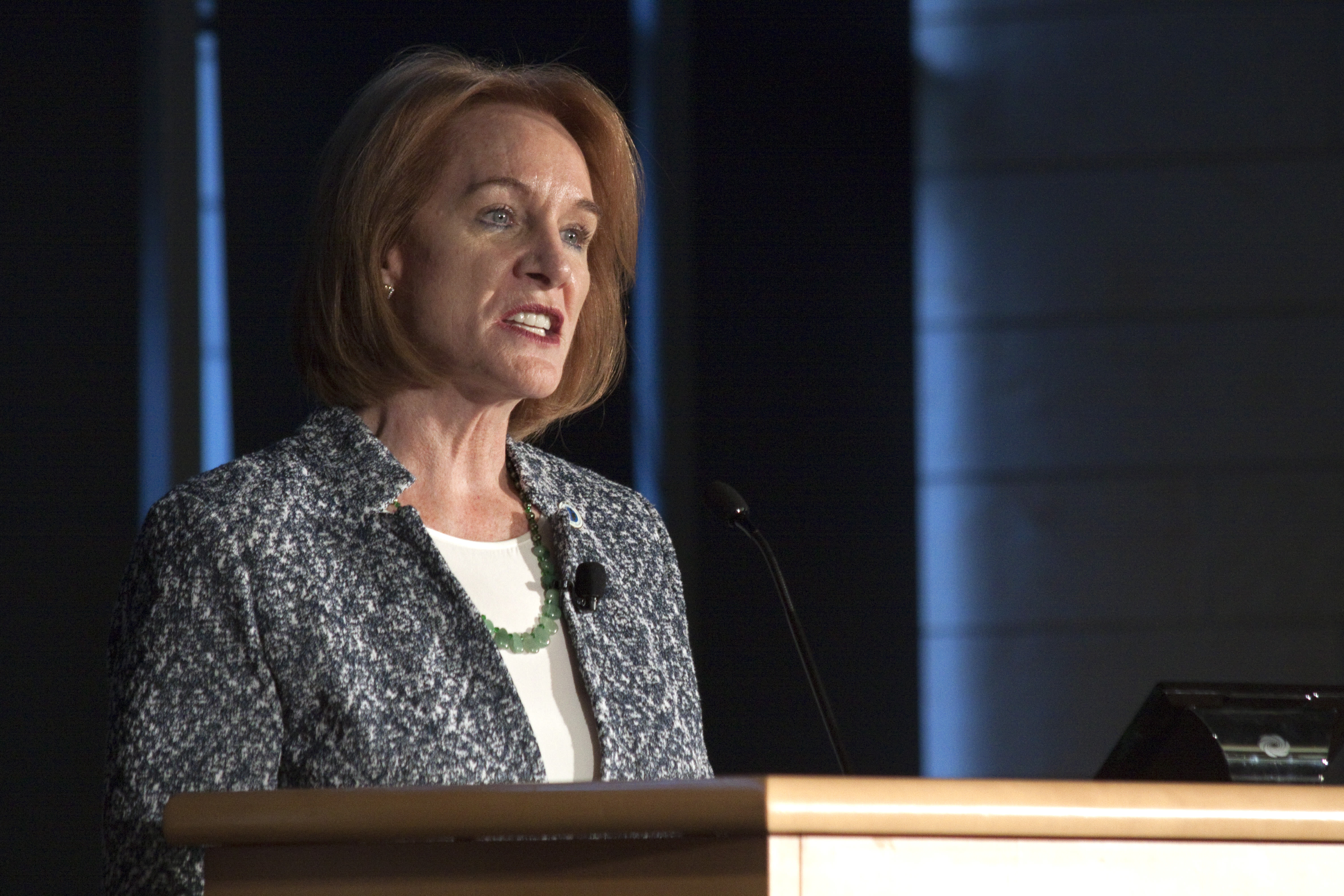City Hall
Burgess Damns McGinn's Speech With Faint Praise
City Council member Tim Burgess put up a damning-with-faint-praise post on his blog yesterday afternoon about Mayor Mike McGinn's State of the City Speech, which I (and many at city hall) described as disorganized and "a bummer."
Praise because Burgess said McGinn "did a good job creating context for future initiatives he might propose" and gently dinged critics of the speech for expecting "detailed policy proposals" just six weeks into McGinn's term. "For goodness sake, he's only been in office for six weeks," Burgess wrote. *
Faint because Burgess' post is filled with thinly veiled jabs at McGinn, who "didn't offer specific policy proposals," spoke to a room in which "about a third of the seats were vacant," and "continued his informal, conversational style of speaking" (read: Didn't have a speech prepared).
More directly, Burgess also called McGinn out for "continu[ing] to misrepresent the city's obligations related to removal of the Alaskan Way Viaduct" by suggesting that the city's $930 million commitment to pay for tunnel costs puts the city at financial risk. "Even if the Mayor's surface only option had been chosen, the City would still incur these costs," Burgess wrote. "On the cost overruns challenge the Mayor continues to raise I would just remind everyone that this is a state highway, a state designed and managed project, a state selected contractor, and a state paid-for project. ... The City of Seattle is not on the hook for any of the tunnel's direct costs."
Burgess is widely viewed as a potential mayoral contender in 2013.
* Fact check: McGinn's predecessor, Greg Nickels, had also only been in office three weeks when he delivered his first State of the City address. Yet he proposed a number of specific policy proposals in that speech, including: The creation of an Economic Opportunity Task Force charged with specific goals for the creation of living-wage jobs; improving traffic and the condition of city streets by focusing on potholes and clearing accidents; improving funding for the city's emergency preparedness plan and increasing police and firefighter training; and restoring funding for neighborhood streets projects, among many other specific proposals.
Praise because Burgess said McGinn "did a good job creating context for future initiatives he might propose" and gently dinged critics of the speech for expecting "detailed policy proposals" just six weeks into McGinn's term. "For goodness sake, he's only been in office for six weeks," Burgess wrote. *
Faint because Burgess' post is filled with thinly veiled jabs at McGinn, who "didn't offer specific policy proposals," spoke to a room in which "about a third of the seats were vacant," and "continued his informal, conversational style of speaking" (read: Didn't have a speech prepared).
More directly, Burgess also called McGinn out for "continu[ing] to misrepresent the city's obligations related to removal of the Alaskan Way Viaduct" by suggesting that the city's $930 million commitment to pay for tunnel costs puts the city at financial risk. "Even if the Mayor's surface only option had been chosen, the City would still incur these costs," Burgess wrote. "On the cost overruns challenge the Mayor continues to raise I would just remind everyone that this is a state highway, a state designed and managed project, a state selected contractor, and a state paid-for project. ... The City of Seattle is not on the hook for any of the tunnel's direct costs."
Burgess is widely viewed as a potential mayoral contender in 2013.
* Fact check: McGinn's predecessor, Greg Nickels, had also only been in office three weeks when he delivered his first State of the City address. Yet he proposed a number of specific policy proposals in that speech, including: The creation of an Economic Opportunity Task Force charged with specific goals for the creation of living-wage jobs; improving traffic and the condition of city streets by focusing on potholes and clearing accidents; improving funding for the city's emergency preparedness plan and increasing police and firefighter training; and restoring funding for neighborhood streets projects, among many other specific proposals.




